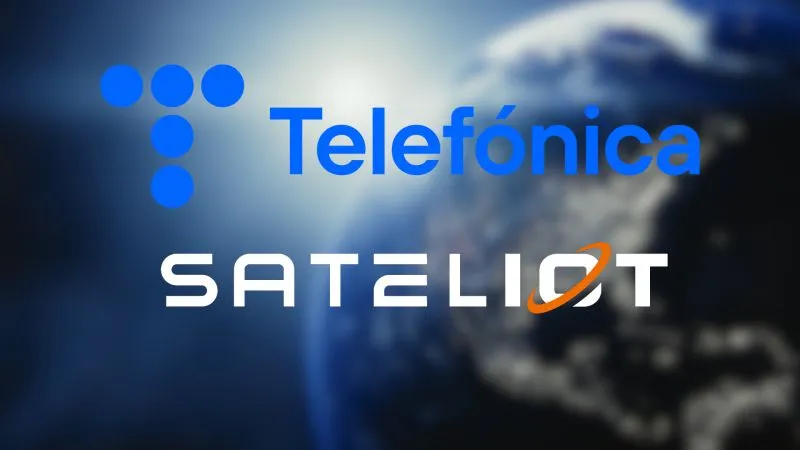
Sateliot and Telefónica’s – Pioneering the 5G Roaming Connection for Space
For the first time in the history of telecommunications, Sateliot, the first company to operate a Low-Earth orbit (LEO) 5G IoT satellite constellation, and Telefónica have successfully extended the reach of the 5G network to space.
This monumental achievement, supervised by the European Space Agency, paves the way for universal access to connectivity.
The Groundbreaking Test
The end-to-end test, a first-ever extension of a cellular network roaming to space, was conducted in partnership with Telefónica. The test demonstrated that a standard roaming connection could be authenticated by the Telefónica core through Sateliot networks, using a regular SIM card provisioned on the Kite platform of Telefónica Tech on an IoT cellular device.
The Innovative ‘Store & Forward’ Implementation
The test also featured the innovative ‘Store & Forward’ implementation, a two-step authentication method developed and patented by Sateliot. This technology is part of a Sateliot 5G network with satellite access that stores data when the satellite is not in a position to connect with a ground station and forwards it as entering the coverage range. This is a particularly relevant feature for Sateliot’s delay-tolerant IoT services for its early-stage constellation.
“Sateliot has achieved an important milestone by successfully demonstrating the integration of Low-Earth orbit and NTN (Non-Terrestrial Network) with roaming capabilities in Store&Forward mode, along with two-step authentication into a 5G cellular network. This significant achievement”, says Antonio Franchi, Head of Space for 5G and 6G Strategic Programme at the European Space Agency, “marks a disruptive advancement in the realm of standard satellite IoT services. The successful integration of these technologies paves the way for the digitalization of the world, revolutionizing how we harness satellite capabilities for the benefit of global connectivity and communication.”
The Impact of the 5G Roaming Connection for Space
The successful results of the test validate the further agreements between Sateliot and several stakeholders to improve millions of lives worldwide. Starting in 2024, Telefonica will be the first MNO to provide their customers with NB-IoT everywhere-in-the-planet connectivity through a seamless combination of cellular and satellite standard NB-IoT network and with inexpensive commercial standard NB-IoT devices.
Marco Guadalupi, CTO of Sateliot, says:
“This is the culmination of years of studies and developments of our Store & Forward two-step authentication procedure that gives Sateliot a unique position to establish roaming extension for NB-IoT NTN delay tolerant applications. We are in front of a game changer in future 3GPP networks that will reduce costs based on low density constellations and reduced ground segment infrastructure, minimizing the impact in space and reducing time to market. It is very exciting to see where we are and what we have accomplished. The IoT industry is clearly headed toward the standard, and we are thrilled to enable it.”
About Sateliot: IoT Connectivity Everywhere and for Everyone
Sateliot is launching the first LEO satellite constellation based on the 5G standard, allowing unmodified commercial cellular NB-IoT NTN devices to connect from space. It is the first time in history that terrestrial cellular telecommunications seamlessly merge with satellite connectivity, and Sateliot is leading this revolution.
About Telefónica Tech 5G Roaming Connection for Space
Telefónica Tech is the leading company in digital transformation. The company offers a wide range of services and integrated technological solutions for Cyber Security, Cloud, IoT, Big Data and Blockchain.
About the European Space Agency (ESA)
The European Space Agency (ESA) provides Europe’s gateway to space. ESA is an intergovernmental organization, created in 1975, with the mission to shape the development of Europe’s space capability and ensure that investment in space delivers benefits to the citizens of Europe and the world.
By coordinating the financial and intellectual resources of its members, ESA can undertake programmes and activities far beyond the scope of any single European country. It is working in particular with the EU on implementing the Galileo and Copernicus programmes as well as with Eumetsat for the development of meteorological missions.










